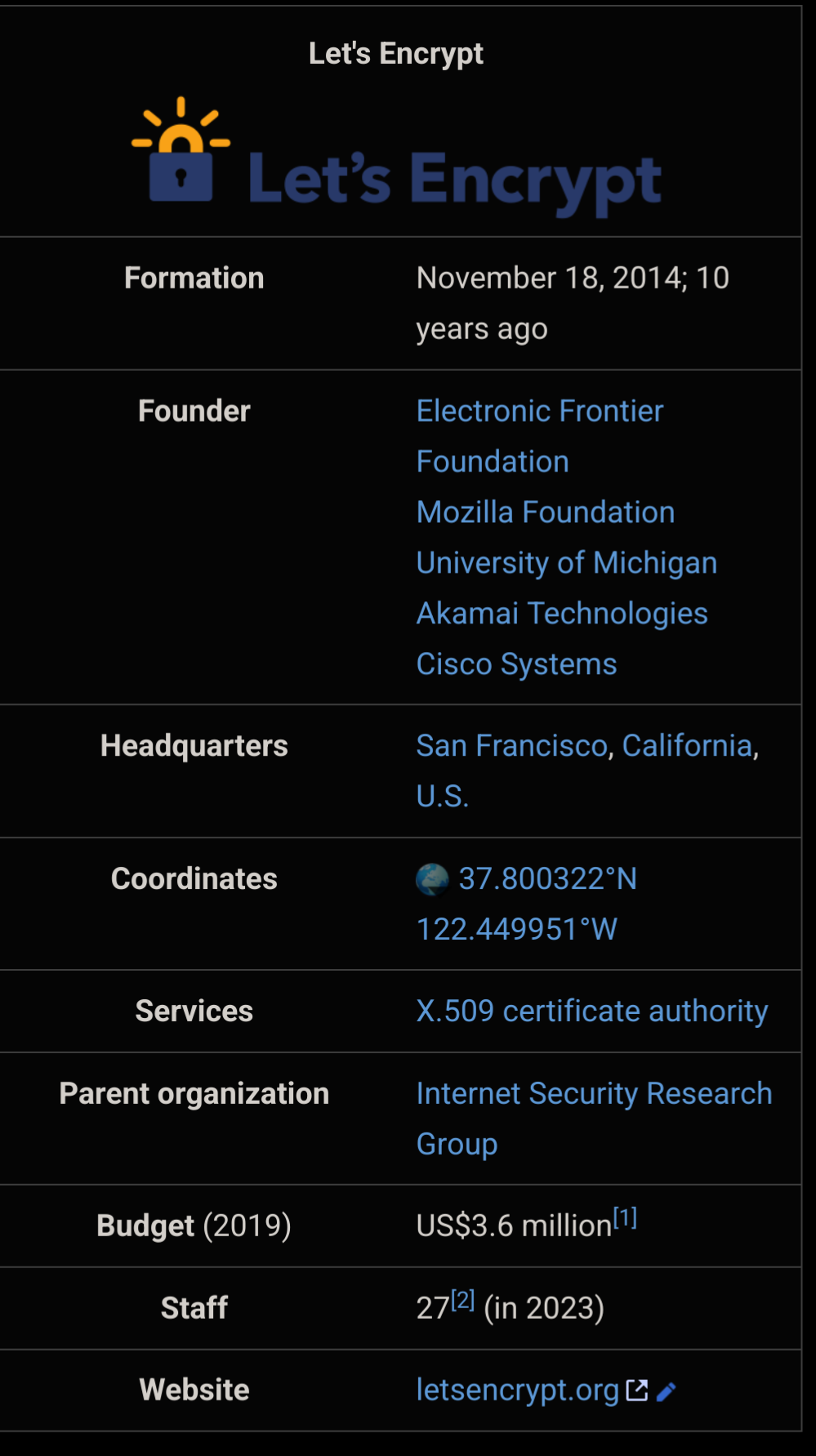this post was submitted on 18 Nov 2024
975 points (99.6% liked)
Technology
61304 readers
2678 users here now
This is a most excellent place for technology news and articles.
Our Rules
- Follow the lemmy.world rules.
- Only tech related content.
- Be excellent to each other!
- Mod approved content bots can post up to 10 articles per day.
- Threads asking for personal tech support may be deleted.
- Politics threads may be removed.
- No memes allowed as posts, OK to post as comments.
- Only approved bots from the list below, to ask if your bot can be added please contact us.
- Check for duplicates before posting, duplicates may be removed
- Accounts 7 days and younger will have their posts automatically removed.
Approved Bots
founded 2 years ago
MODERATORS
you are viewing a single comment's thread
view the rest of the comments
view the rest of the comments

Yes, seems you are right. Not sure where I got the impression.
Unrelated, when I researched this I saw that acme.sh, zerossl, and a bunch of other acme clients are owned by the same entity, "Stack Holdings"/"apilayer.com". According to this, zerossl also has some limitations over letsencrypt in account requirements and limits on free certificates.
It is suspicious that they impose so many restrictions then waive most on the acme api, where they presumably could not compete otherwise. On their gui they allow only 3 certificates and don't allow multi-domain at all. Then even in the acme client they somehow push an account into the process.
This all does make me slightly worry this block around apilayer.com will fall before letsencrypt does.
Other than letsencrypt and zerossl, this page also lists no other full equivalents for what letsencrypt does.
I think if LetsEncrypt went away, so would ZeroSSL's free offer.
However, I do think not having limitations on the API is good; automation is good practice and I guess this is a concession to customers /users who have no automation in place (though this is a sad state by now). LE doesn't offer anything comparable AFAIK.